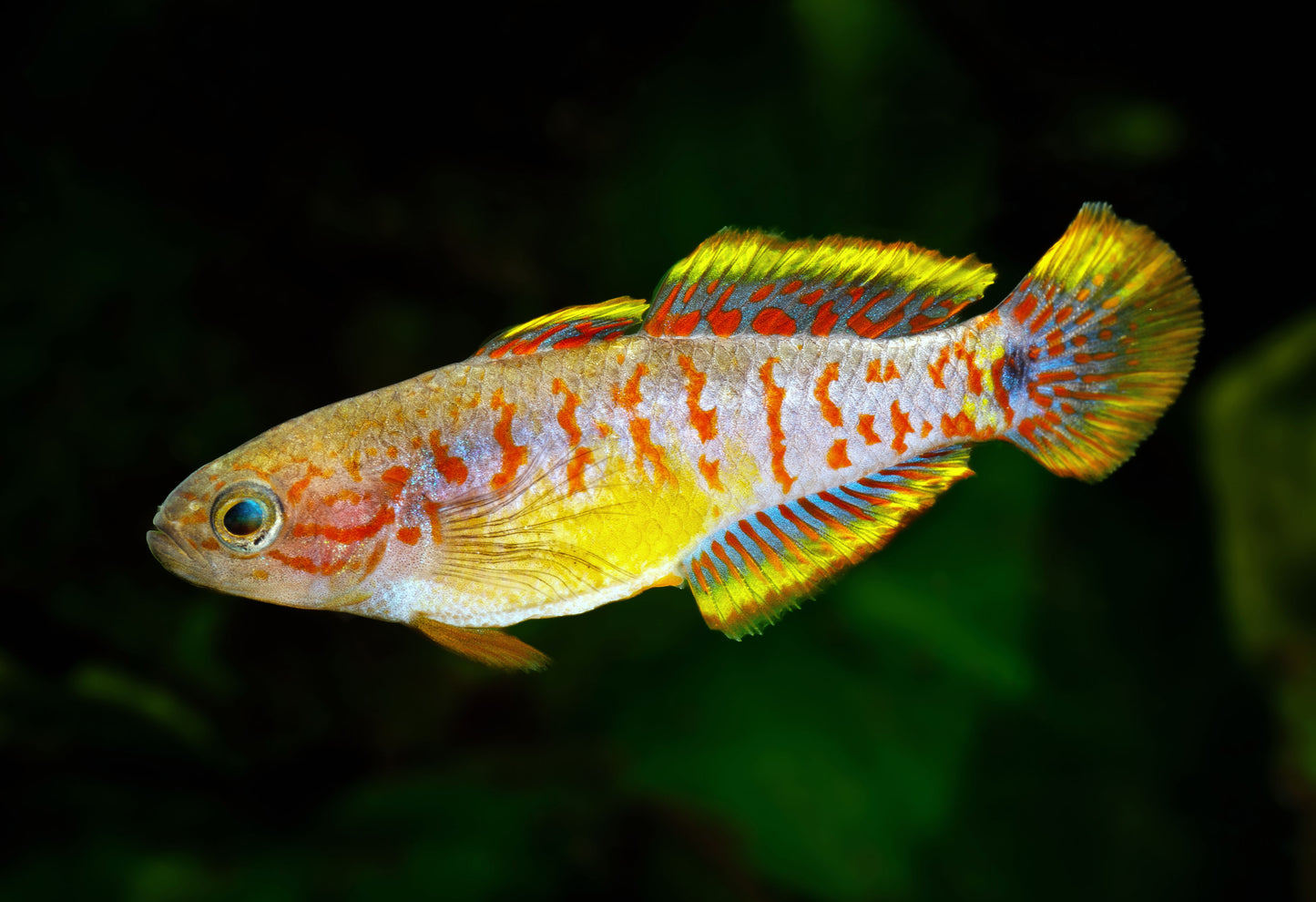Peacock Gudgeon (Tank-Bred)
Peacock Gudgeon (Tank-Bred)
Couldn't load pickup availability
To protect our animals and to ensure they get to our customers healthy, we will only ship orders with Nano Fish via UPS Next Day Air.
Native to Papua New Guinea, the Peacock Gudgeon's intriguing behaviors and coloration is well-known in the fishkeeping community. If you’re looking for a gorgeous fish for a planted nano aquarium, one would be hard pressed to find a more striking fish than the Peacock Gudgeon (Tateurndina ocellicauda).
Beautiful red and blue vertical stripes run along its body, with yellow tints around the edges of their fins. Their tails feature a dark, rounded “eye-spot”. Males have a rounder head than their female counterparts and can develop a nuchal hump. They can grow up to 3 inches in length, with females usually being ½ - 1” shorter. These fish have a lifespan of ~4-5 years. Breeding in captivity is not uncommon, with fish pairing up the male performing a dancing ritual to entice the female to lay their eggs. After fertilizing the eggs, the male will fiercely protect them from hungry mouths.
Males can display posturing behavior with other males which can be pretty cool to watch. To optimize prime coloring and to deter territorial behavior, we recommend keeping these fish in groups of at least 3 or more. A planted aquarium with plenty of hiding spots such as driftwood and rocks will further encourage peaceful social behavior. There have been reports of Peacock Gudgeons being jumpers, but a tight lid will ensure that they don’t mistakenly leave their homes! Keeping water flow to a minimum will keep their stress levels down, as they aren’t the most powerful swimmers.
Regarding compatibility, these fish are frequently kept with other similar sized peaceful swimmers. Smaller invertebrates and their offspring may end up an occasional snack for the Peacock Gudgeon. Larger invertebrates such as amano shrimp or vampire shrimp generally hold their own, given their size.
Our Tank Water Parameters
PH: 7.2 to 7.5
GH: 7 to 8
KH: 3 to 4
TDS: 180 to 250
Temp: 72 to 75
We feed them a mix of live baby brine shrimp, frozen daphnia and high-quality flake food.

I am in love with these little beauties! They mix well with my galaxy rasboras. Would definitely recommend to anyone who is thinking about purchasing from you all. 100%

